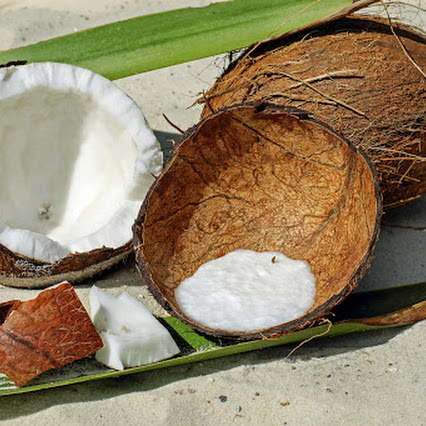Beauty Art Time - Need to Re-Discover It?
Beauty Art Time
It seems that the spirit of our time no longer appreciates beauty.
Prince Charles was speaking to the Royal Institute of British Architects on the occasion of the 150th anniversary of the proposed extension of the National Gallery.
"What is suggested is like a wild ember on the face of a very lovable and elegant friend." (Prince of Wales)
He saw much of British architecture as ugly and sterile.
Is this still true? Do we need to rediscover the beauty around us?
Define beauty
When we see something beautiful, its beauty is personally felt. However, the concept of beauty and ugliness is far fetched and difficult to describe and define. This may be due to individual differences in our appreciation of it. Beauty is in the eye of the beholder. What someone finds beautiful, and the other is just emotional. One, attractive, and another disgusting.
Beauty is said to be about an appreciation of harmony, balance, and rhythm. It attracts our attention, pleases the mind, and raises it.
It is not the things that art depicts that determine whether something is beautiful or ugly. Instead, the way the object is approached makes it inspiring.
Spiritual philosopher Emmanuel Swedenborg suggests that what arouses our sense that a human face is beautiful is not the face itself, but the emotion that emanates from it. It is spirituality in nature that arouses our emotions, and naturalness is not alone.
"A woman's beauty is not in the position of a face but the true beauty of a woman is reflected in her soul. It is the attention she gives with love; the passion that she shows. The beauty of a woman grows with the passage of years." (Audrey Hepburn)
Beauty can also happen, even in suffering.
"Even in some of the most painful moments I've experienced as a doctor, I find a sense of beauty ... that our brains are designed to record another person's pain, and my desire to be affected by it and do something about it is very gratifying." (Doctor and poet Raphael Campo)
Creative art
Philosopher Roger Scroton points out that between 1750 and 1930 the goal of art or music was a beauty. People saw beauty as valuable as truth and goodness. Then in the twentieth century, it was no longer important. Then many artists sought to confuse, shock, and break moral taboos. The oldest of these was Marcel Duchamp, for example. The formula for a urinal. It wasn't a beauty, but originality, irony, and other intellectual ideas that they focused on. This is what won the prizes, regardless of the cost.
The art world now believes that those looking for beauty in the art are far from modern reality. Since the world is disturbing, the art must also be disturbing. However, I would suggest that what is shocking the first time is that it is uninspiring and blank when it is repeated.
“If the world is so ugly, what is the point of making it ugly with ugly music? ... I've tried to make it sound as beautiful as I can. Otherwise, what's the point ... so if you want to hear how ugly the modern world is, ... You can just turn on the TV and listen to the news. But I think most people go to concerts because they want to hear nice music. Music is full of melodies that you can huddle or sing with. Heart-wrenching music, music that wants to make you smile or cry or dance. (Alma Deutscher, 12-year-old violinist/pianist)
If there is still an artist creating beautiful artistic things, I think, like any good news in the newspapers, they are not getting the headlines.
Awakening to spirituality
In addition to much of our contemporary art and our built environment, can we also discover the uneasy unattractiveness - not to mention the focus on self and attack - that now comes into the language and literature that appears in our media? As if beauty no longer has a real place in our life.
So when we find ourselves in the soup of negativity, are we giving ourselves time to open up to beauty?
"What is this life if it is full of care,
We don't have time to stand up and stare ...
No time to look at a beauty look,
And watch her feet how they can dance.
No time to wait until he can mouth her
That smile enriched her eyes.
A bad life that if, full of care,
We don't have time to stand up and stare. (William Henry Davies)
The impact of cultural change on us
I wonder if losing beauty is also losing something else. Something I would describe as a deeper perception of what is good and innocent in life.
Scruton suggests that living without this deeper realization is like living in a spiritual desert. He argues that artists of the past were aware that life was full of chaos and suffering. But they had a cure for this and the cure was a beauty. He believes a beautiful work of art brings solace in sadness and affirmation in joy. It shows that human life is worth it.
Beauty - a reminder of hyper-reality
Beauty is in the eye of the beholder. But is beauty just a personal thing? Is there also an objective truth to it?
Perhaps we need to revisit the wisdom of the ancients. According to Plato, beauty, like justice and goodness, is an eternal being. He said it is there forever, regardless of changing social concepts and circumstances. This means that beauty was present even when no one noticed it.
Light takes millions of years to travel a vast distance to reach our telescopes. So now we see the beauty of the stars as it was before humans existed.
I would say that beauty is something that, in essence, has the truth of innocence - the innocence of the absolute love itself.
“Beauty is truth, beauty is truth, that's it
You know the Earth and all you need to know. '' (John Keats, poem on a Greek jar)
As a clinical psychiatrist, Stephen Russell Lacey specialized in cognitive-behavioral psychotherapy, working for many years with adults in distress and disorder








No comments
Post a Comment